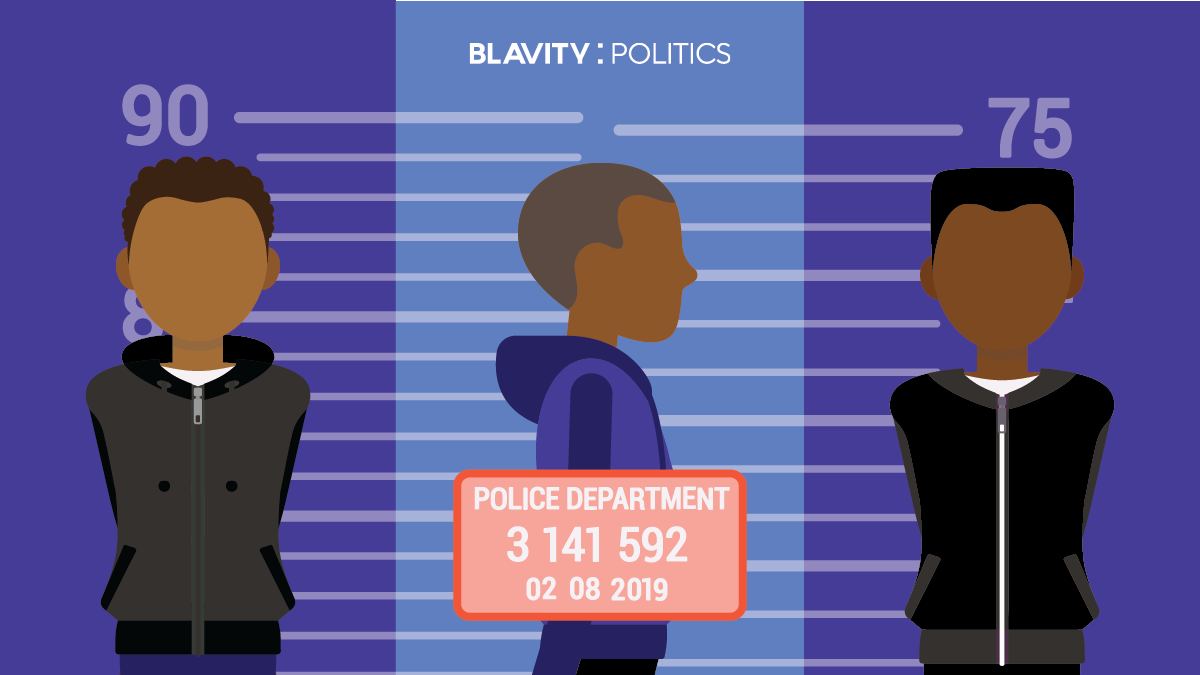Imagine getting pulled over by the police. Moments later, the police officer lets you know that you have been listed as a gang member in a gang database by their department. These entries into digital gang databases have been around since the 1980s as an “investigative tool” for police departments to use when cracking down on gang activity and formation. However, these gang databases specifically target Black communities with its entries, raising the question of whether these are new methods of racial profiling or not.
In 2018, 90% of people entered into California gang databases were men of color, particularly Black and Latinx men. With gang databases preliminarily placing targets on Black and Brown people, mass incarceration will have yet another vehicle helping to drive people of color into its prison system.
Gang databases are considered legal under federal law. Just by association or allegation, anyone could be entered into a gang database, and as such, it’s easy to get on one and much harder to be taken off. Usually through raids and traffic stops by law enforcement, police officers gather information from suspected gang members. These random checks and captures are occurring in seemingly "dangerous" Black communities, often poor neighborhoods. This allows police to monitor specific areas that are known to have gang activity. Federal law allows police officers to keep records of “criminals” in their departments, making gang members criminal suspects before any unlawful action has been done.
To collect the necessary information, police officers conduct “field interviews,” where they question people to see if they meet the criteria of gang association. Some of the criteria includes admitting to being in a gang, displaying hand signs, wearing gang dress (such as particular colors), being seen or affiliated with gang members and being in places where gangs are known to congregate. Many of the gang databases have a point system that racks up points to classify someone as a gang affiliate based on a certain amount of criteria. For example, Boston’s gang database lists a person with six or more points as a “gang associate”. Ten or more points gets a stamp of “gang member.” If someone is suspected of being connected to a gang, the officer will make a field interview card that will place their name and information in the database. They will also find other people who are close to them to indict as gang members. Social media has given police departments ammunition to include more people into the gang database just through the photos posted on Instagram and friend lists on Facebook.
This process works to streamline a person’s entry into the prison system. Courts can use the documentation of a person’s name in a gang database to justify their sentencing for criminal charges. Also, the judge can place “gang sentencing enhancements” on a person charged with a crime, which involves adding additional time onto their sentence for their connection with a gang. Since this is happening in Black neighborhoods, this puts Black people in harm’s way and in the path of unwanted police interaction.
The gang databases are also provided to Immigration and Customs (ICE) to target and deport undocumented folks, fulfilling the promise of Trump to deport gang members. An inclusion into a gang database can cause the rejection of Deferred Action For Childhood Arrivals (DACA) rights, targeted raids to detain migrants who seek asylum and a quicker deportation process. The gang database also acts like a criminal record in that certain applications for housing, jobs and financial support can be denied once a person is arrested by police.
Not only do these gang databases criminalize gangs and everyone near their vicinity, its large proportion of Black victims solidifies its intent to inflict harm and increase law enforcement surveillance on Black communities. This overwhelming amount of entries of Black people has stirred up some opposition. Portland's gang database was dismantled in 2017 after it was revealed that 81% of its entries were people of color. In addition, an organized coalition, Chicagoans for an End to the Gang Database, has filed a federal lawsuit against the City of Chicago for its gang database, and Youth Justice LA is organizing to pass legislation that strips away the use of alleged gang connection when a person is charged with a crime.
Although many organizers are fighting to end gang databases, getting your name off of them is a battle on its own. Most people don’t have access to the gang databases to find out if they are listed in them. An exception is in California, where a 2013 law allows parents to dispute a child’s entry into the gang database. An entry into the gang database can change a Black person’s life, as the gang listing in police departments can make Black people more susceptible to police brutality. Meanwhile, white supremacists are hardly listed as gang members and are free to inflict violence onto Black people and other minorities.
These gang databases place a prison sentence on Black people's backs without the need for a criminal charge. The racial bias of police systems are putting Black people in danger of losing everything. Until all states have banished gang databases, Black people will have to continue to live in fear of being just another statistic.
